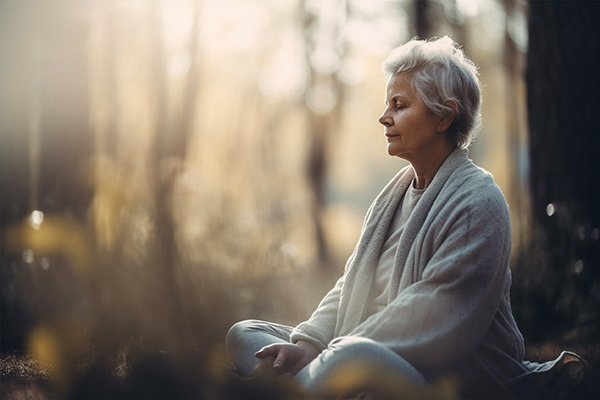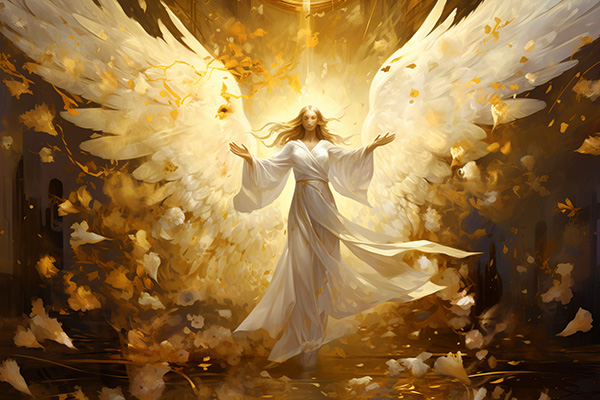prayer
Staying Spiritually Nourished In A Digital World
 If you’re feeling stuck in cycles of anger, sadness, anxiety, or fatigue, take a moment to ask yourself: what am I consuming?
If you’re feeling stuck in cycles of anger, sadness, anxiety, or fatigue, take a moment to ask yourself: what am I consuming?
This question goes far beyond food. Are you consuming negativity online? Are you surrounding yourself with people who drain rather than uplift? Are you spending more time in front of a screen than under the sky?
Everything you consume and engage with in this world either feeds your inner light or diminishes it. Everything you watch, listen to, interact with, and invite into your life.
This truth is simple yet profound. We may not always realize it, but the choices we make each day either nourish our spirit or cloud it.
In today’s world, it’s easy to become entangled in habits, distractions, and energies that gradually drain our vitality. The barrage of social media updates, the constant hum of technology, processed foods, fear-driven news cycles, anger, jealousy, dishonesty, and gossip. All of these things can chip away at the divine light within us, if we let it.
On the other hand, there are sacred and intentional choices that can uplift and energize us. Fresh fruits and vegetables grown with love from the Earth. Gentle sunlight warming your skin. Time in nature, listening to the rhythm of the trees and the whispers of the wind.
Loving and conscious relationships. Forgiveness. Kindness. Generosity. Dance, art, singing, and the tender beauty of genuine joy. These are not luxuries. They are lifelines to your highest self. They feed your light. Continue reading
Be Your Own Light In Times Of Darkness
 We’ve been facing dark days and challenging times across the world in recent years, no matter where we live. But the future is much brighter than it may seem, and that light of hope begins with you.
We’ve been facing dark days and challenging times across the world in recent years, no matter where we live. But the future is much brighter than it may seem, and that light of hope begins with you.
With social media and constant news feed updates, mostly centered around negativity, disaster, conflict, or tragedy, many of us feel overwhelmed these days. These are especially not easy times for the spiritually conscious person and the highly sensitive.
Our generation is being bombarded with a stream of distressing information and content, much of which includes falsehoods and fearmongering. Children today are exposed to more in grade school than some of us were after we graduated and entered the workforce. That’s not always a good thing, but it also means they’re growing up faster, and with the right guidance, they can grow up wiser.
When people talk about “the good old days,” they’re usually thinking about how much simpler life seemed in the past. I remember my grandparents saying such things long before there was the internet, smartphones, or AI. So, I guess every generation has its own reasons for nostalgia, and this sentiment is nothing new in the digital age.
That said, some of us today still grew up without television or even radio, and lived through the full evolution of the current digital age. Many elders still feel disconnected from how rapidly things have changed. But there’s beauty in that too. Each generation carries wisdom, and now, more than ever, we need to blend that wisdom with the tools of today to create a better path forward for all of us.
A Beginner’s Guide To Holistic Healing
 True healing is about more than just easing lower back pain or calming anxious thoughts. It’s about supporting the “whole you” so you can live in greater balance, joy and peace.
True healing is about more than just easing lower back pain or calming anxious thoughts. It’s about supporting the “whole you” so you can live in greater balance, joy and peace.
It means caring for the body, the heart, the mind, and the soul. While each of these areas can be worked on separately, the deepest transformation happens when they’re all supported together. That’s the essence of holistic healing.
For many people who are new to holistic healing, it can seem complex, mysterious, or even intimidating. Often, there’s curiosity, but also uncertainty about where to begin, especially if they’ve never tried it before.
Some worry they’re not knowledgeable enough, or believe it’s something only meant for people with special spiritual insight or advanced esoteric understanding. Others may wonder if they’ll “do something wrong” or fear they won’t understand what’s happening during a session.
These feelings are completely normal, but they can hold you back from exploring something that could be deeply supportive and life-changing.
The truth is, holistic healing doesn’t have to be complicated or overwhelming. You don’t need to know every technique or understand all the details to benefit from it. An experienced healer will help you find the best route, even if you’ve never walked the path before.
If you’ve never had a holistic healing session, here’s what often happens: You might arrive thinking you need one specific kind of support, but a skilled healer will take time to tune in and see what you truly need most. Sometimes they’ll use the method you requested, and other times they may suggest a different approach, or even combine several techniques, to support you in the best possible way. The aim isn’t just temporary relief; it’s to start you on a healing journey you can continue long after the session ends.



